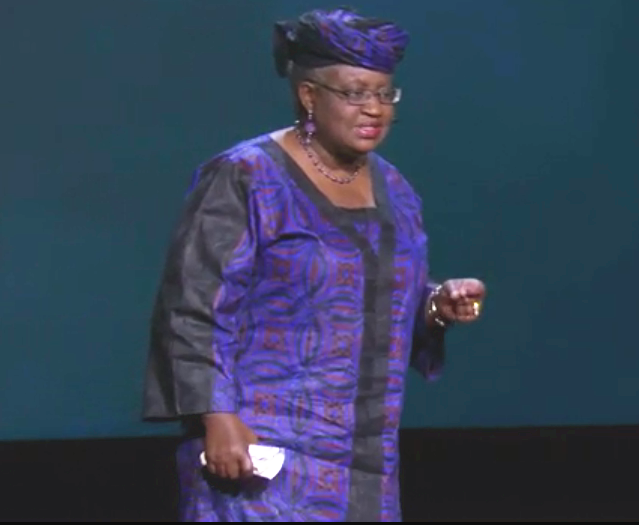The second story has to do with something that I'm sure most of you have seen or will remember.
第二个故事,和那些我相信你们大多数人都见过或者记得相关事情。
Very often, countries in Africa suffer drought and floods,
非洲的国家常常遭受干旱和洪涝,
and it's getting more frequent because of climate change effects.
而随着气候变化的影响,它们正发生得越发频繁。
When this happens, they normally wait for international appeals to raise money.
当灾难发生以后,这些国家通常等待国际呼吁来筹集资金。
You see pictures of children with flies on their faces, carcasses of dead animals and so on.
所以你会看到苍蝇围在孩子脸上的照片,死去动物尸体的照片等等。

Now these countries, 32 countries, came together under the auspices of the African Union
如今,这32个国家一起,在非洲联盟的支持下
and decided to form an organization called the African Risk Capacity. What does it do?
决意组成一个叫做“非洲风险能力机构”的组织。它有什么作用呢?
It's a weather-based insurance agency, and what these countries do is to pay insurance each year,
它是一家气象保险机构,这些国家每年缴纳
about 3 million dollars a year of their own resources,
自身资源约300万美元的保险费,
so that in the event they have a difficult drought situation or flood, this money will be paid out to them,
因此,假使他们碰到了非常严重的干旱或洪涝,这些保险费就可以赔偿给他们,
which they can then use to take care of their populations, instead of waiting for aid to come.
他们也就可以用这些钱去照顾他们的人民,而不是等待国际援助的到来。
The African Risk Capacity last year paid 26 million dollars to Mauritania, Senegal and Niger.
去年,非洲风险能力机构赔付了2600万美元给毛里塔尼亚、塞内加尔和尼日尔。
This enabled them to take care of 1.3 million people affected by drought.
这使他们有能力去照顾130万被干旱影响的人。
They were able to restore livelihoods, buy fodder for cattle, feed children in school
他们能够恢复生计,购买喂牛的饲料,在学校里喂养孩子
and in short keep the populations home instead of migrating out of the area.
简而言之,保护了人们的家园,而不是迁出那个地区。
So these are the kinds of stories of an Africa ready to take responsibility for itself,
所以,这些就是非洲已经准备好承担属于它自己的责任,
and to look for solutions for its own problems.
并且为它自己的问题寻找解决之道的故事。











